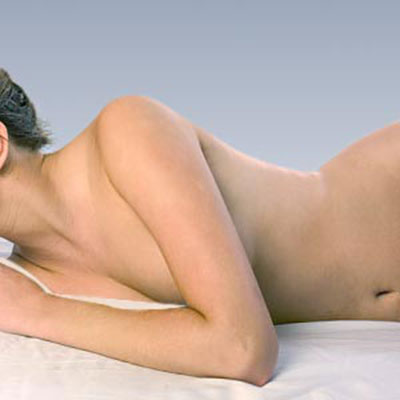Hypoactive Sexual Desire Disorder Women

Hypoactive sexual desire disorder (HSDD) is the leading sexual complaint by women and is characterized by diminished or complete absence of libido. It is found to occur in at least 20% of women in the US.
HSDD is an aversion to sex, a sexual apathy and sexual anorexia with inhabited sexual desire. In simple terms, it can be defined as an extreme aversion to sex and absence of and avoidance of all genital sexual contact with a sexual partner.
In extreme cases, the patient finds sex repulsive, revolting and distasteful so much so that phobic and panic responses are exhibited. Hypoactive sexual desire disorder may either be oriented against a single partner in particular, or it may be a lack of sexual interest in anyone in general.
Low sexual desire is often associated with aging. It is estimated that 10% of women age 49 or younger have low desire, 22% of women age 50 to 65 and 47% of women age 66 to 74 report low desire.
Why HSDD?
Often HSDD is the result of either physical or emotional trauma. In general, a woman's sex drive is guided
by a complex system of signals between her brain, ovaries and other
reproductive sexual organs. It is a healthy brain, more than a healthy body
that dictates desire for sex. Often a disruption in this complex interaction
between brain and body may cause decreased interest in sex.
- Decreased sex drive or less interest in sex may occur
in a woman at any age. But this sexual dysfunction is more common during
and after menopause has ended. Several physical and psychological factors
cause sexual dysfunction. These include:
- Physical ailments such as diabetes, vaginal yeast
infections, urinary tract infections, heart disease, neurological
disorders, pelvic surgery, chronic liver disease, chronic kidney disease,
menopause, alcoholism, smoking, drug abuse, breast feeding, and recovery
after childbirth.
- Psychological causes such as stress from work and
family, anxiety, marital discord, unresolved sexual orientation,
depression and previous traumatic sexual experiences.
- Physical ailments such as diabetes, vaginal yeast
infections, urinary tract infections, heart disease, neurological
disorders, pelvic surgery, chronic liver disease, chronic kidney disease,
menopause, alcoholism, smoking, drug abuse, breast feeding, and recovery
after childbirth.
- In some HSDD may be a primary condition and the
patient must have never felt any sexual desire or exhibited interest in
sex. This may be due to sexual trauma such as incest, sexual abuse or
rape. Sometimes repressive family attitude and rigid religious training
may be the cause for this primary HSDD condition.
- Whereas in some patients sexual desire might have
occurred formerly but it no longer has interest. Initial attempts at
sexual intercourse might have resulted in pain or sexual failure and hence
this condition.
- Insufficient levels of sexual hormone, testosterone
can cause HSDD in males and females.
- Boredom in relationship with a sexual partner results
in acquired HSDD.
- Depression, use of psychoactive or antihypertensive
medications may contribute to this problem. Studies indicate that at least
12% of women experience clinical depression at some point of time in their
lives. One of the side effects of popular anti depressants is loss of
libido. She may feel isolated and overwhelmed and withdraw from sexual
activities.
- HSDD may result from impairment of sexual function
such as vaginismus on the part of female. Vaginismus is a voluntary
contraction or spasm of the lower vaginal muscles resulting from an
unconscious desire to prevent vaginal penetration. This may be due to
incompatibility in sexual interest between the sexual partners. This can
also occur in the presence of a sexually demanding partner.
- Dyspareunia or painful intercourse is another common
deterrent to genital sexual activity in women. This is caused by
vaginismus or local urogenital trauma or inflammatory conditions such as
hymenal tears, labial lacerations, urethral bruising, or inflammatory
conditions of the labial or vaginal glands.
- Delayed sexual maturation may be a potential cause of
HSDD. In girls, this is characterized by lack of breast enlargement by age
thirteen or by a period greater than five years between the beginning of
breast growth and onset of menstruation.
Signs and symptoms of HSDD
There is an inability to attain
or maintain adequate vaginal lubrication and swelling response. Intercourse is
painful and involuntary contraction of vaginal muscles, vaginismus occurs.
There is delay or absence or orgasm. She avoids having sex and she ignores her
own personal hygiene to avoid having sex. She has fewer erotic dreams and
sexual fantasies.
HSDD and menopause
During and after menopause, the estrogen level is remarkably reduced in women. This leads to dryness of the vagina which makes sex painful. This in turn leads to reduced motivation in sexual intercourse. The decrease in drive is due to the gradual decline in the hormones estrogen, progesterone and testosterone.
Although this disorder is prevalent in women in all reproductive stages, it is seen that younger, surgically postmenopausal women are at greater risk. Prevalence in naturally postmenopausal women is 9% and in surgically postmenopausal younger women is 26%.
Treatment of HSDD
Treatment of HSDD is related to
its cause. If the reason for the problem is medical, then necessary therapy and
cure is affected. For instance, if the cause is diabetes, improvement in
diabetes control should be aimed.
In case of insufficient testosterone, diagnostic tests are done and supplemental replacement therapy is aimed. Testosterone level less than 20 ng/dl in females indicates need for supplemental replacement therapy.
Low dosage testosterone treatment option is well supported by several researchers and doctors although it has not been approved by FDA. There has been enormous success in treating low-libido patients with supplemental testosterone. Several women who have used the testosterone patch have reported significant increase in the frequency of sexual activity and satisfying desire. A study reveals that women in the testosterone group had a 52% meaningful benefit when compared to other treatment options.
Other treatment methodologies include anti depressants, hormone replacement therapy, androgen therapy, herbal remedies, psychotherapy and marriage counseling.
The prognosis is reasonably good, for instance, in case of treatment of a prolactin secreting pituitary tumor; whereas in case of certain genetic defects such as Turner's syndrome and Klinefelter's syndrome there can be no attainment of sexual function even after treatment modalities.
But as such, there is no approved pharmacological treatment for HSDD. Even psychotherapy has proved to be only minimally effective. If the underlying cause for HSDD is interpersonal in nature, therapy for couples should help as support and understanding of the sexual partner is essential.
It can be observed that majority of HSDD cases are situational in nature arising out of dissatisfaction and loss of interest in the sexual partner. Although significant assistance can be rendered to couples with marital discord, most of the times there is poor response to such therapy. More often than not, the marriage breaks, and the partner opts to find a new sexual partner after divorce.
Side effects of treatment for HSDD
Possible side effects of treatments for HSDD include sleep disorders, headaches, irritability, and
sexual dysfunction in women using antidepressants. Vaginal bleeding, tenderness
of breast, weight gain, abdominal bloating can be observed in women using
hormone replacement therapy. Acne, greasy skin, excessive hair and elevated
cholesterol using androgen therapy are normally observed.
Prevention of HSDD
In women sexual dysfunction is often linked to menopause and its side effects such as depression, she could
well see a healthcare professional before HSDD can become a serious problem.
Early treatment and management should help minimize her problems.
But a thorough understanding and support from the sexual partner is essential for successful treatment of HSDD. In fact there are therapists who would recommend abstinence from genital sex for a period of time and concentrate instead on non-genital sex for effective treatment of HSDD.
Top of the Page: Hypoactive Sexual Desire Disorder Women
Tags:#hypoactive sexual desire disorder women #hypoactive sexual desire #hypoactive sexual desire symptoms #hypoactive sexual desire treatment #hypoactive sexual desire menopause

Testosterone Cream for Women - Home replacement option ...
Sexual Dysfunction in Women - Reclaim your sex life ...
Hypoactive Sexual Desire Disorder Women - Decreased desire ...
Vaginal Dryness - Common menopausal problem ...
Vaginal Discharge - Maintaining personal hygiene ...
Vulvovaginitis - Identify unusual discharge or odor ...
Pheromones for Women - Ignite more passion in him ...
Testosterone Patch for Women - Improve Libido and desire ...
Other health topics in TargetWoman Women Health section:
General Women Health

Women Health Tips - Women Health - key to understanding your health ...
Cardiac Care
Women's Heart Attack Symptoms - Identify heart problems...
Skin Diseases
Stress Hives - Red itchy spots ...
Women Disorders
Endocrine Disorder - Play a key role in overall wellbeing ...
Women's Reproductive Health
Testosterone Cream for Women - Hormone replacement option ...
Pregnancy
Pregnancy - Regulate your lifestyle to accommodate the needs of pregnancy ...
Head and Face
Sinus Infection - Nearly 1 of every 7 Americans suffer from ....
Women and Bone Care

Slipped Disc - Prevent injury, reduce pain ...
Menstrual Disorders
Enlarged Uterus - Uterus larger than normal size ...
Female Urinary Problems
Bladder Problems in Women - Treatable and curable ...
Gastrointestinal Disorders
Causes of Stomach Ulcers - Burning feeling in the gut ...
Respiratory Disorders
Lung function Test - How well do you breathe ...
Sleep Management

Insomnia and Weight Gain - Sleep it off ...
Psychological Disorders in Women
Mood swings and women - Not going crazy ...
Supplements for Women
Women's Vitamins - Wellness needs...
Natural Remedies

Natural Diuretic - Flush out toxins ...
Alternative Therapy
Acupuncture Point - Feel the pins and needles ...
Top of the Page: Hypoactive Sexual Desire Disorder Women
Popularity Index: 101,194

